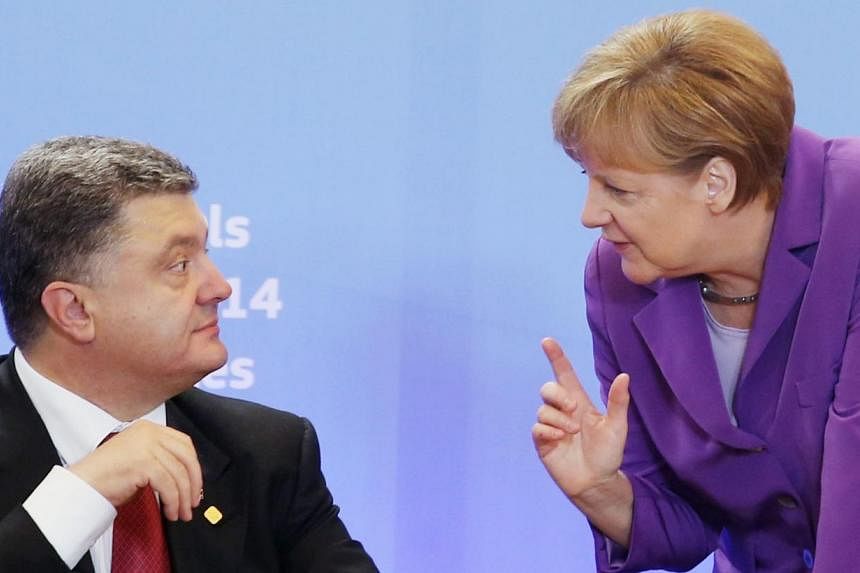BRUSSELS (AFP) - The European Union on Friday signed association accords with Ukraine, Georgia and Moldova as the three former Soviet republics committed themselves to a future in Europe.
"This is a great day for Europe... the European Union stands by your side today more than ever before," European Council head Herman Van Rompuy said at the ceremony with Ukraine President Petro Poroshenko and prime ministers Irakli Garibashvili of Georgia and Iurie Leanca of Moldova.
Russia warned of "serious consequences" over the deals by Ukraine and Moldova, which were signed despite Kremlin objections.
"The consequences of the signing by Ukraine and Moldova will certainly be serious," Deputy Foreign Minister Grigory Karasin told the Interfax news agency.
He added, however, that "the signing of such a serious document is, of course, a sovereign right of any state.
President Vladimir Putin's spokesman warned that Russia would act if the accord ended up hurting its economic interests.
"We will take all the necessary measures to protect our economy," Kremlin spokesman Dmitry Peskov told the state ITAR-TASS agency.
The hugely symbolic deal lies at the heart of a raging crisis in Ukraine sparked by Moscow-backed former president Viktor Yanukovych's sudden decision to put the trade and political agreement on ice in November following pressure from Moscow.
The ditching of the deal led to Mr Yanukovych's ouster in February, Russia's takeover of the Ukrainian peninsula of Crimea in March and a three-month long separatist uprising in eastern Ukraine that claimed more than 400 lives.
The Kremlin has repeatedly stressed that Kiev cannot expect to pursue cooperation with both Russia and the EU.
Mr Putin had wanted Ukraine to join the Moscow-led customs union and eventually the Eurasian Union that Moscow bills as an alternative to the European bloc. He has slammed the West for seeking to draw Russia's Soviet-era allies into its sphere of influence and away from historic master Moscow.

